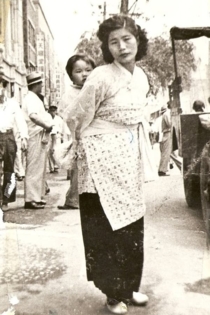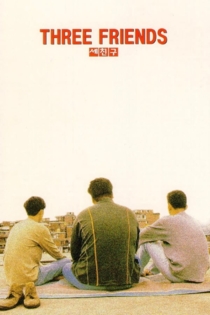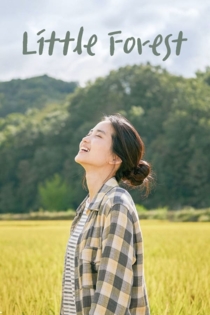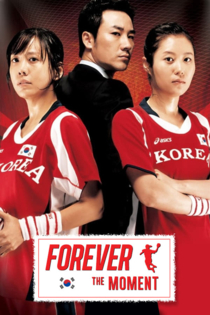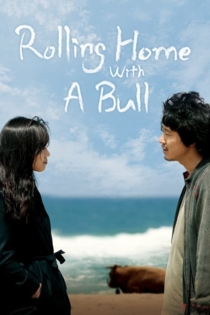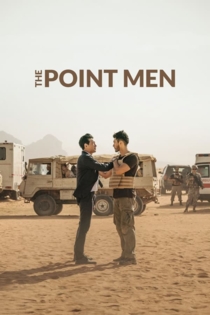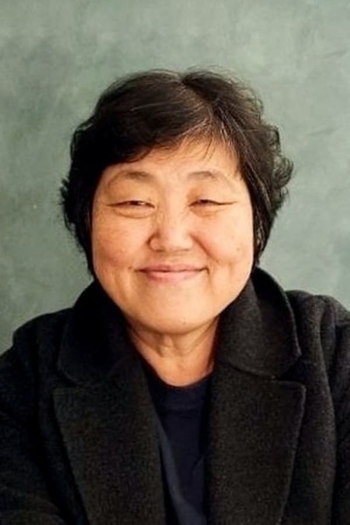
Yim Soon-rye
1960 (66 лет)우중산책
Yim Soon-rye
Dong Bang-woo
Jeong-ja isn’t especially pretty or talented. She’s an old maid in her thirties who works at the ticket booth of a theater on the outskirts of town. It’s a hot summer’s day, and because Jeong-ja cannot take time off from her job, she waits for her blind date at the theater ticket booth all day long. But the date does not show up. She follows a handsome stranger who comes out of the theater. At that moment, there’s a thunderstorm. The man disappears and Jeong-ja returns to the theater, drenched and there, she finds her blind date waiting for her.
Walking In The Rain
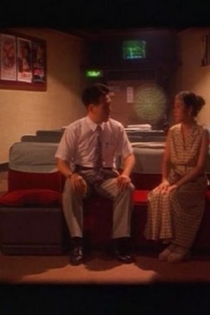
미안해, 고마워
Yim Soon-rye, Oh Jeom Gyoon
Kim Ji-ho, Son Jong-hak
An impossibly cute and thoroughly touching omnibus of 4 short fillms about how humans can elevate their own relationships through bonding with animals - featuring some of the cutest puppies and kittens ever on the silver screen!
Sorry, Thanks
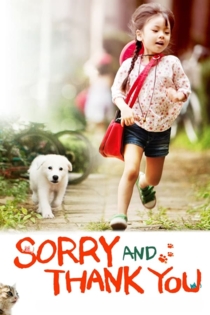
와이키키 브라더스
Yim Soon-rye
Lee Eol, Park Won-sang
Waikiki Brothers is a band going nowhere. After another depressing gig, the saxophonist quits, leaving the three remaining members to continue on the road. The band ends up at the lead singer's hometown, which was a popular hot spring resort in the '80s, but the return home is filled with reservations of previous and past disappointments, a lost love, unemployment and tragedy.
Waikiki Brothers
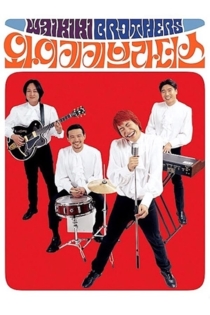
제보자
Yim Soon-rye
Park Hae-il, Song Ha-yoon
Lee Jang-hwan receives widespread acclaim and media attention after successfully cloning human embryo stem cells. A TV news program PD, Yoon Min-cheol, receives a phone call from an anonymous source who says he has worked with Dr. Lee on the stem cell project. The source blows the whistle on Lee's work, revealing how Lee fabricated research results and engaged in unethical practices.
The Whistleblower
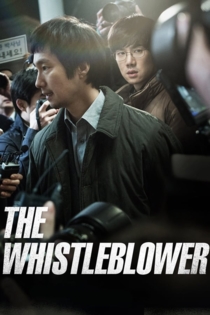
영화판
Heo Chul
Bong Joon-ho, Moon So-ri
Director Chung Ji-Young criticizes the thought that older directors have difficulties in making certain movies. Actress Yoon Jin-Seo agonizes over her identity as an actress. In 2009, before the movie "Unbowed" was made, they met and planned a documentary about Korean movies, including the processes a Korean movie goes through and difficulites. "Ari Ari the Korean Cinema" is a documentary with interviews of Korean directors, actors and actresses.
Ari Ari the Korean Cinema
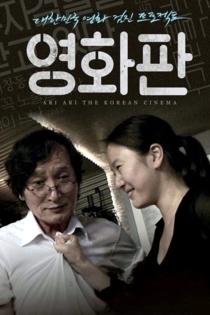
남쪽으로 튀어
Yim Soon-rye
Kim Yoon-seok, Oh Yeon-soo
Hae-gap is a director who makes anti-government documentary films. One day, Hae-gap’s son, Na-ra, runs away from home, but Man-deok, a freeloader living in Hae-gap’s house ends up bringing him back. Later, Man-deok raids the head developer of Deul Island to stop its exploitation, and Na-ra helps and ends up getting caught. In order to bring Na-ra out from jail, Hae-gap signs to stop making anti-government films and moves to Deul Island with his family. Na-ra sees his father leading a good, quiet life there and starts opening up. But when a construction company charges in to clear-out the island and the islanders fall at risk of losing their homes, Hae-gap leads a strike against it and his family fall in grave danger...
South Bound
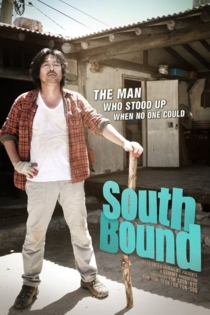
여섯 개의 시선
Yim Soon-rye, Park Jin-pyo
Jo Sun-kyung, Lee Seol-Hee
Anthology film of six shorts by leading Korean directors. Park Chan-Wook, tackles racial prejudice and the economic exploitation of immigrant workers through the real-life story of a Nepalese woman in Korea. Jeong Jae-Eun, tackles the plight of a paedophile released into the community. Yeo Gyun-Dong, invites disabled actor Kim Moon-Joo to re-enact his most famous protest. Im Soon-Rye, goes for the engrained sexism of Korean men with superb wit and, Park Jin-Pyo, confronts the horror of children forced into oral surgery to improve their English-speaking ability.
If You Were Me
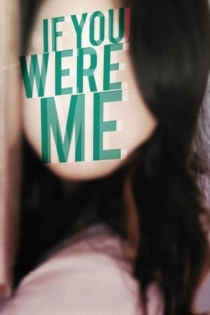
다섯 개의 시선
Jung Ji-woo, Kim Dong-won
Kim Su-hyeon, Ahn Kil-Kang
Commissioned by South Korea's National Human Rights Commission, If You Were Me is an innovative omnibus film project to promote tolerance and human rights and shed light on the hardships disadvantaged people face in Korea. After the success of the first anthology, a second series, If You Were Me 2, was released this year. Five notable Korean directors - Park Kyung Hee (A Smile), Ryoo Seung Wan (Crying Fist), Jung Ji Woo, Jang Jin (Guns & Talks), and Kim Dong Won - participated in the second installment, creating shorts on human rights issues of their choosing.
If You Were Me 2
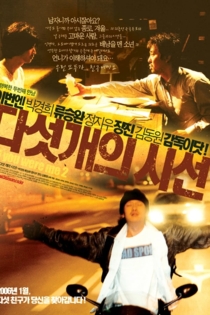
날아라 펭귄
Yim Soon-rye
Moon So-ri, Ahn Do-gyu
Seung-yun is stressed out because he is sent to several private academies after school. His mother reproves him for not living up to her expectations. His father takes pity on him for being nagged on by his mother all the time... Ju-hun, a new employee at a company, is a vegetarian and cannot drink alcohol at all. Chang-su thinks Ju-hun is eccentric and is displeased with him... Su-hyeong sent his son and daughter with his wife to study abroad, but he grows tired of staying alone in his empty house... SONG has lived with her authoritarian husband without any serious problems, but she does not want to stay with him anymore. GWON, an old man, pretends to be calm in the face of his wife’s request for divorce. But actually he can’t do anything by himself... These are not unfamiliar fictional events but rather they reflect the lives of ordinary people in Korea at the present time. Through their stories, shows us how a society imposes normalcy on its people in their daily lives.
Fly, Penguin
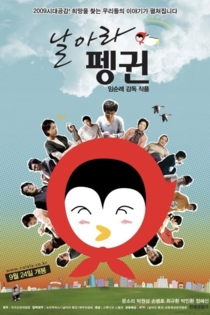
아름다운 생존: 여성 영화인이 말하는 영화
Yim Soon-rye
Choi Eun-hee, Park Nam-ok
Keeping the Vision Alive is a documentary film containing the voices and images of Korean women filmmakers-both senior filmmakers and also the peers of director Yim. The film is Yim’s homage to both contemporary Korean women filmmakers, written by a filmmaker of the same age, and also to the history of women filmmakers in Korea. Yim does not reveal her own voice or opinion and lets the voices and images of the filmmakers speak for themselves through a non-interventionist camera. From the pioneers, Park Nam-ok, and Hwang Hye-mi, who directed First Experience in 70’s, to recent filmmakers, Byun Young-joo and Jang Hee-sun, the film traces their experiences, troubles, concerns and thoughts as women and women filmmakers. Keeping the Vision Alive calmly and enthusiastically encourages and celebrates the struggles, the resistance and the survival of women filmmakers in a conservative Korean film industry and a male-dominated and sexist social system. (Kwon Eun-sun)
Keeping the Vision Alive
